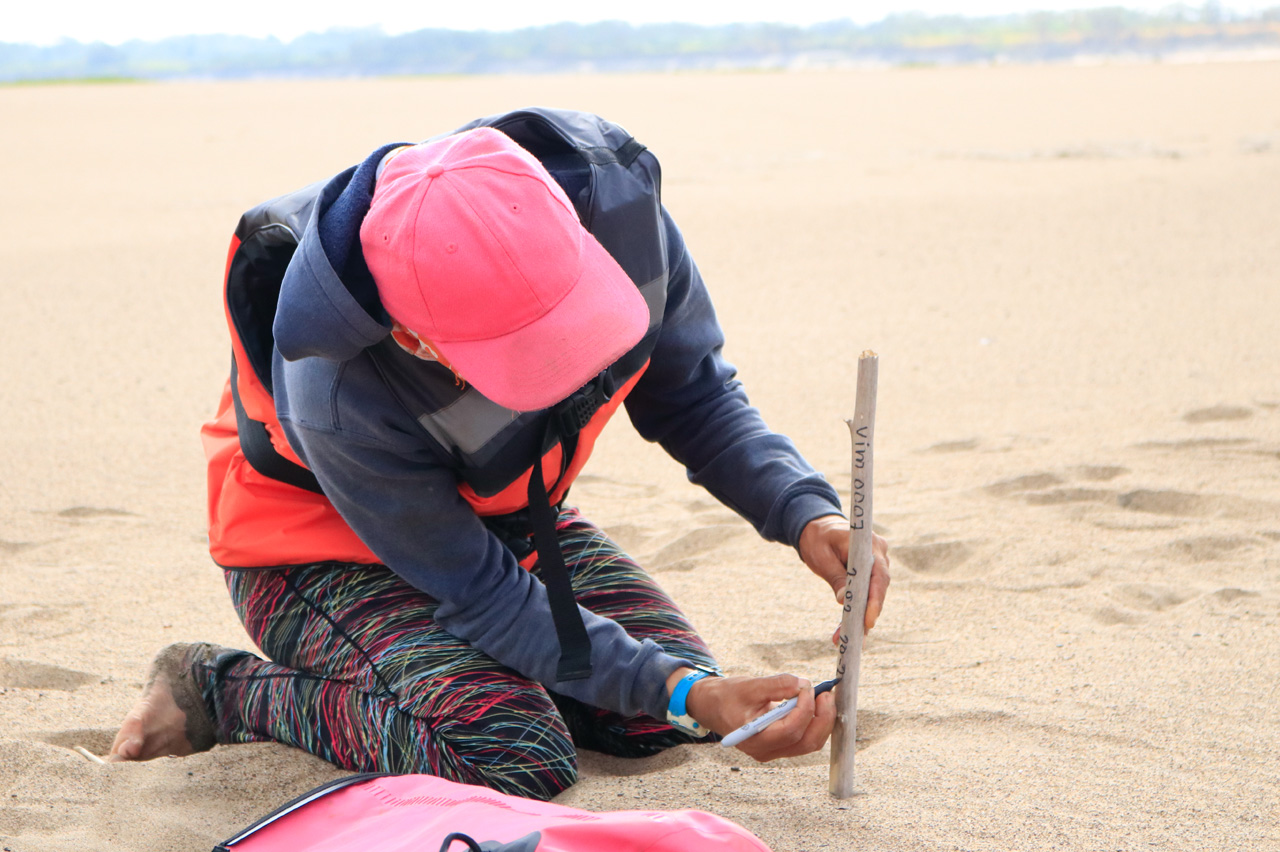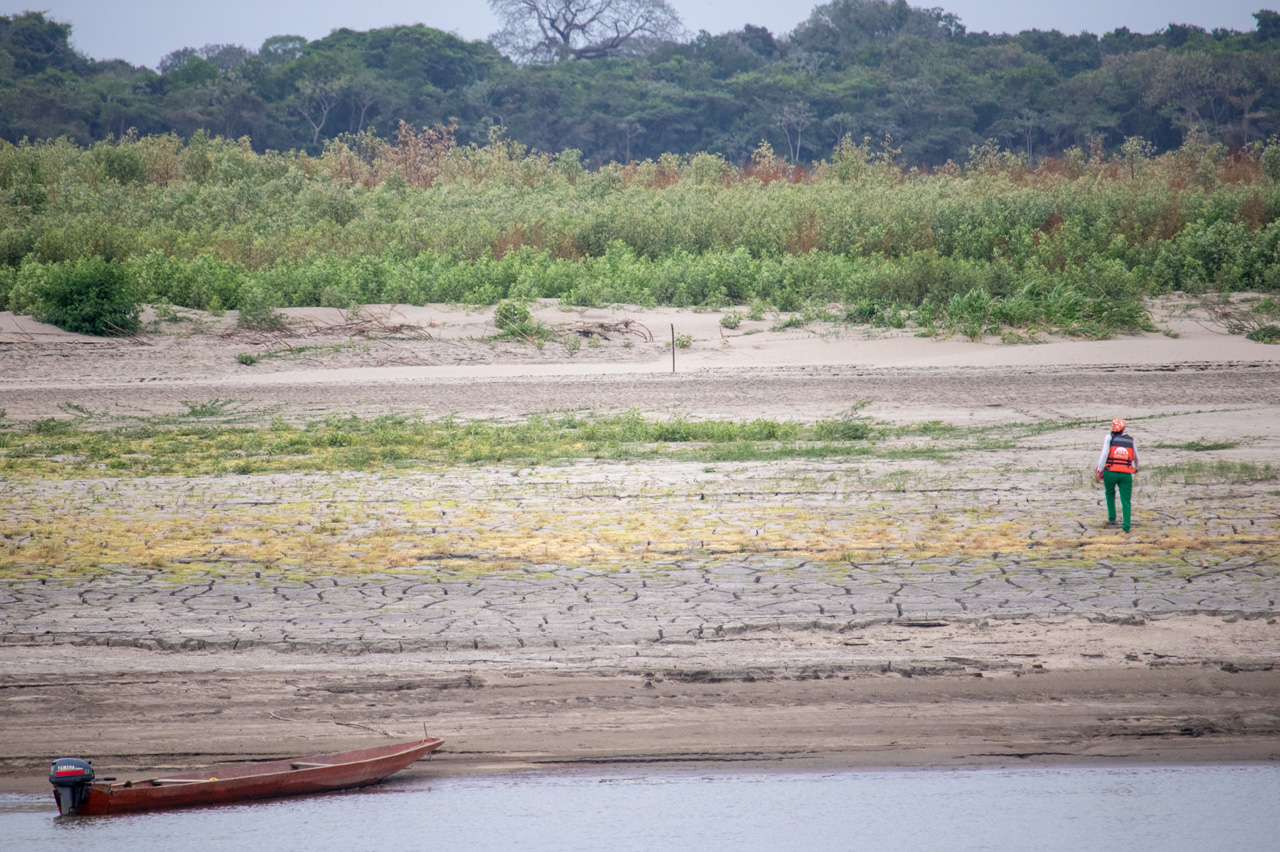The Adoptive Parents group is an initiative of the Proyecto Vida Silvestre (PVS) aimed at establishing an indefinite strategy to protect the charapa turtle (Podocnemis expansa) with the community’s collaboration in areas of La Virgen, Cravo Norte, Arauca, in the Orinoquia region.
This reptile is not only an emblematic species of the region but also plays a crucial role in ecosystems. It helps transport fruits and seeds along rivers, aiding in the renewal of associated flora and supporting the stability of certain habitats. Additionally, it serves as a vital food source for birds, catfish, foxes, jaguars, and caimans, all of which are key to maintaining ecological balance.
 Photo: Mauricio Correa / WCS Colombia
Photo: Mauricio Correa / WCS Colombia
Since January, taking advantage of the dry season or low-rainfall period, the charapas begin to leave the Meta River—where they spend most of the year—to lay their eggs. During this time, the Adoptive Parents group, composed of representatives from 10 families, spring into action.
After signing a conservation agreement and receiving scientific information about the charapas, everyone participated in walks to check the nests built by the females and the hatching of the baby turtles, which occurred approximately two months after each nesting.
In previous years, between 2015 and 2021, the Adoptive Parents were given a monetary reward for caring for the turtles. However, since 2022, an agreement was made to transform this community monitoring into a strictly voluntary exercise.
 Photo: Mauricio Correa / WCS Colombia
Photo: Mauricio Correa / WCS Colombia
Before starting this work, they were trained to use a GPS device to mark the location of the verified nests, so there was no need to mark them with stakes or other visible signals, which could expose the nest or make it visible.
Throughout 2024, they covered about 40 kilometers of land spread across 19 beaches and identified 224 nests.
Traslated via ChatGPT